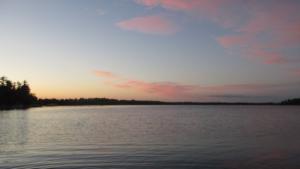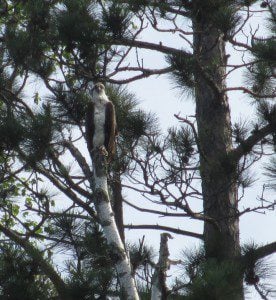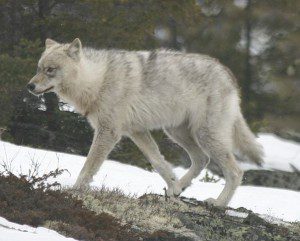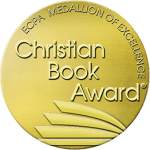The Bible isn’t “Green.” That is to say, it doesn’t directly address the environmental issues of our day. It does provide guidance however. Several years ago I posted on Iain Provan’s book Seriously Dangerous Religion including a post looking at the view of creation presented in the Old Testament. It is worth a new look before moving on to Moo and Moo on Creation Care: A Biblical Theology of the Natural World.
 A long title to this post could be “What the Old Testament really says about our relationship to the rest of creation … and why it matters.” That is a bit of a mouthful though. The short title could be simply “Earth Keeping.” This isn’t some conservationist piece, trying to fit the Old Testament into a modern “Green” narrative. Rather Iain Provan tries to dig past many recent misinterpretations to look at the view of creation presented in the Old Testament narrative. There are many ways to get this wrong. Green narratives, consumption narratives, and curse narratives all get important things wrong.
A long title to this post could be “What the Old Testament really says about our relationship to the rest of creation … and why it matters.” That is a bit of a mouthful though. The short title could be simply “Earth Keeping.” This isn’t some conservationist piece, trying to fit the Old Testament into a modern “Green” narrative. Rather Iain Provan tries to dig past many recent misinterpretations to look at the view of creation presented in the Old Testament narrative. There are many ways to get this wrong. Green narratives, consumption narratives, and curse narratives all get important things wrong.
So what does Provan see as a better approach, more faithful to the text and the original context? What does the Old Testament have to say about earth keeping?
First – the world was not created for humankind. It doesn’t exist solely for our benefit. Humans are produced from the earth … the same as all other animals, and receive the breath of life possessed as well by the other animals. All creatures, and indeed all of creation, has a God-given dignity that is not dependent upon human beings.
Psalm 104:10-23 makes this clear: all creatures have their own purposes and destinies under God independent of their relationships with us. The book of Job returns to this same theme in its closing chapters (38–42), as a suffering Job is pressed to recognize that his is not the only show in town. God has many creatures (other than humans) to look after, each living its life quite independent of Job and not sharing Job’s concerns. It is significant in relation to this point that the conclusion to the creation week in Genesis 1:1–2:4 occurs not on the sixth day with the creation of human beings but on the seventh day, when God “rested.” It is Sabbath rest, not the creation of humanity, that completes creation and brings it to its fullness. (p. 223)
Second – humans, as the image of God, are given a task and responsibility. In Genesis 2 this task is a priestly task, keeping the garden of God, looking after the earth on behalf of its owner. In Genesis 1 this is a kingly task – to rule and subdue. Although the latter could reflect military conquest, Provan notes that “the vocation of kings in the context of the ancient world involved not only ruling and subduing but also looking after the welfare of their subjects and ensuring justice for all.” (p. 225) and “The ruling king of Genesis 1 is at the same time the priestly servant of Genesis 2. He is a steward of God’s world, accountable always and in every respect to the Owner of the garden, the Creator.” (p. 226)
The role of humankind in ruling, subduing, and keeping God’s creation has been described differently in Christian interpretations of Genesis 1-9. One popular view, especially among those who hold to a young earth, is that the nature of creation changed dramatically following the Fall of Adam and Eve in Genesis 3. Provan argues against this view. It is, he suggests, read into the text rather than from the text, and foreign to the views of the original ancient Near Eastern audience.
Although God has created a good world, it is not devoid of challenges and problems that we must overcome in order to live a blessed life in it—and indeed to bring blessing to creation itself.
It is this reality that is alluded to, I suggest, in the Genesis 1 reference to ruling and subduing. God’s good world will always need to be controlled and shaped in various ways if life is to flourish. Jungle and forest will need to be pushed back and kept back for human settlement and agriculture to take place. Wild land animals (Heb. khayyat ha’arets; 1:24-25) will need to be kept away from domestic ones (“livestock,” Heb. behemah; 1:24-25). Rivers will need to be contained and directed if they are to provide water for crops and be beneficial (rather than destructive) to all life—to bring life rather than death. This is just the way the world is. The earth does not just need to be kept, but also controlled; it needs further shaping, beyond what God has done in the original creative moments of the cosmos. The human relationship with the remainder of creation, therefore, is inevitably a relationship marked by struggle as well as by harmony—from the beginning. This is not the case simply because human beings have embraced evil, although inevitably this makes the struggle more intense. The struggle is already built into the fabric of things. It is intrinsic to the good world that Godhas created. (p. 227)
 The Fall has introduced a new feature into this mix, but not through some fundamental change in creation. Rather the embrace of evil by humankind has resulted in a declaration of war. “Human beings are thus envisaged in Genesis 9 as having abandoned their God-given responsibility to exercise just and appropriate dominion over the earth. Instead, war has been declared on animal creation. The multifaceted nature of human kingship is reduced to one aspect—conquest.” (p. 228)
The Fall has introduced a new feature into this mix, but not through some fundamental change in creation. Rather the embrace of evil by humankind has resulted in a declaration of war. “Human beings are thus envisaged in Genesis 9 as having abandoned their God-given responsibility to exercise just and appropriate dominion over the earth. Instead, war has been declared on animal creation. The multifaceted nature of human kingship is reduced to one aspect—conquest.” (p. 228)
A reading of Genesis 9:1-3 as the move of humans from vegetarians to carnivores represents, in Provan’s view, an implausible reading of Genesis 1-9. Livestock was given to humans from the beginning. The distinction between domesticated livestock and other animals is made in Genesis 1. A sacrificial system is explicit in Genesis 4 and implicit in Genesis 7. In the Old Testament “sacrificial ritual involves the eating of the sacrificial victim. Sacrifice and eating go together.” (p. 229) Likewise the text of Genesis 1:24-25 with its division of animals into “the livestock, the creatures that move along the ground, and the wild animals” (NIV) reflects, in Provan’s interpretation, livestock (behemah), nonpredatory land animals (remes), and predatory land animals (khayyat ha’arets). The NIV translation doesn’t do justice to the text in this case.
Any objection based on Isaiah 11:6-9 makes the mistake of assuming that “that everything that is true about the future in biblical thinking is also true about the past.” (p. 231) Other texts, including Psalm 104, make it clear that the OT authors viewed creaturely eating habits as unchanged from the dawn of creation. Predatory lions are not an evil – although they do need to be kept away from the sheep.
Provan suggests that Genesis 9, far from being a new permission for carnivorous consumption, “is a passage about a change in human relationship with the animal world.” (p. 233) A care mind-set is replaced by a conquest mentality. Chaos replaces order as a result of human failure, a part of the curse of creation that results from human embrace of evil. “Another boundary has been breached, in a biblical book that is replete with examples of such boundary infringements.” (p. 234)
One can view many of the dietary restrictions in the Law, concerning clean and unclean animals, blood and such, as steps to restore order in a world that is being overcome by chaos.
What does this mean for Israel (and for us)?
How am I to relate to the rest of creation? I am to relate to it as one creature among many, refusing to regard myself as God in relation to it. Yet I am to recognize that I am unlike other creatures, in that I am made in the image of God. As such, I am to view myself as an earth keeper, working and taking care of God’s garden. I am also to view myself as a ruler, ruling on God’s behalf, looking after the welfare of my subjects, and ensuring justice for all. This demanding vocation, I am to recognize, is greatly complicated by the human embrace of evil. (p. 239)
This doesn’t mean that we are to always view the natural state as best, or to take a fatalistic view. At times we are called to change creation and at times to maintain it. To know the proper step in any situation requires wisdom.
Although God has created a good world, it is not devoid of challenges and problems that human beings must overcome to live a blessed life in it while also blessing creation. Jungles and forests, wild animals, and rivers present some of these challenges. It is difficult, in fact, to imagine how a burgeoning human population could ever have survived, and then flourished, without changing its environment in such ways (and others), and there is no evidence that the biblical authors themselves tried to imagine this. It must have been as obvious to them as it is to us that if one is going to keep domestic sheep in ancient Palestine, one is going to have to fight off lions and bears (1 Samuel 17:34-37). It must have been as obvious to them as it is to us—much more obvious, in fact—that if one is going to survive at all in such an environment, the problem of access to usable (and indeed drinkable) water will need to be solved. (p. 240)
And later:
The Old Testament does not answer every specific question, then, about how human beings ought to relate to the rest of creation. It invites the reader, instead, into the way of wisdom and discernment, guided by two familiar imperatives: remember that you are one creature among many (and not, therefore, a “god” in relation to others); remember that you are made in the image of God (and are, therefore, an earth keeper and ruler of creation). These imperatives will inevitably require that, to some extent, we intervene in and change aspects of creation as we find it, especially when it causes suffering. But these same imperatives will also lead us to respect and accept creation as we find it, even when it causes suffering. (p. 242)
 To drive wolves to extinction because they endanger livestock and strike fear into the hearts of man is to go far too far. This does not exercise wise stewardship as keepers of the earth. (image source) Nor do certain forms of mining or waste disposal exercise wisdom in stewardship. On the other hand, damming a river, irrigation, construction of cities, and cultivation often do reflect wise stewardship. So does the development of medicine along with various form of disease control.
To drive wolves to extinction because they endanger livestock and strike fear into the hearts of man is to go far too far. This does not exercise wise stewardship as keepers of the earth. (image source) Nor do certain forms of mining or waste disposal exercise wisdom in stewardship. On the other hand, damming a river, irrigation, construction of cities, and cultivation often do reflect wise stewardship. So does the development of medicine along with various form of disease control.
Both radical “green” and radical consumption narratives are at odds with the Old Testament view of the relationship between humans and God’s good creation. The fatalistic narrative that the earth is cursed and we must live with the curse is also at odds with the Old Testament. The people are always called to choose between obedience and blessing or disobedience and cursing. We can and should strive for righteousness and proper wise keeping of God’s creation. Wisdom is the key – always bearing in mind the role that human embrace of evil can play in our perceptions.
What does it mean to fill the earth and subdue it?
What is the mandate given to humans?
If you wish to contact me directly you may do so at rjs4mail[at]att.net.
If interested you can subscribe to a full text feed of my posts at Musings on Science and Theology.















